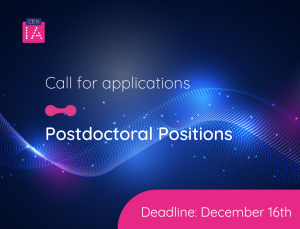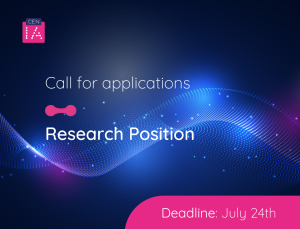
Between October 5 and 7, took place the XXXIV SOCHEDI Congress, a meeting organized annually by the Chilean Society of Engineering Education (SOCHEDI) and the Faculty of Engineering of the Pontificia Universidad Católica de Chile, which seeks to bring together the main players involved in the education and development of engineering.
Given the accelerated progress of artificial intelligence in the world and its strategic role for the development of the country, this year the central theme of the congress was “Artificial Intelligence for Engineering Education: how to incorporate and teach it to improve training,” seeking to convey to teachers of different engineering disciplines the importance of training their students in relevant AI topics.
In this context, Cenia had an outstanding presence during the three days of the Congress, starting with the participation of researcher Claudia Lopez during the opening of the event, who was invited as keynote speaker to present the lecture “Towards a people-centered artificial intelligence.” In this presentation, the researcher, who is also an academic in the Department of Computer Science at Universidad Técnica Federico Santa María, proposed an approach that promotes the development of new, more ethical and responsible technologies, putting people at the center of engineering practice.

During the second part of the first day of the Congress, Cenia researchers Jorge Baier, Hans Löbel and Andrés Abeliuk participated in the panel “Teaching artificial intelligence,” to discuss activities and educational strategies to transfer knowledge and skills associated with artificial intelligence techniques, in addition to sharing experiences and best practices.


At the beginning of the last day of the Congress, took place the panel “Artificial Engineering in the Engineering Industry,” a space for conversation and reflection organized by the National Center for Artificial Intelligence, with Felipe Guerrero, Head of Cenia’s Development team, as moderator and the participation of Jazmine Maldonado, Director of Innovation and Technology Transfer at the Millennium Institute Fundamentals of Data, and Victor Gonzalez Hasbún, Vice President of Data Science at Simpliroute, Cenia’s partner company. The objective of this panel was to present applications of artificial intelligence in engineering problems based on the experience of the company and its work with Cenia, whose focus is to optimize logistics routes for different multinationals and local businesses.
At the close of the event, Cenia researcher and co-founder of the Chilean startup NotCo, Karim Pichara, conducted the virtual presentation “NotCo, development of artificial intelligence technologies to create the food of the future,” to tell the audience about how food products are created with the help of AI and what is the impact of these products on people and industry.
The Chilean Society of Engineering Education is a non-profit trade association created more than 25 years ago, which seeks to improve the quality of university education of engineers, according to the new challenges imposed by the development and growth of a global economy.







